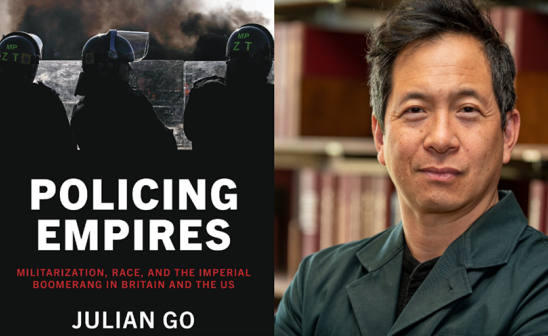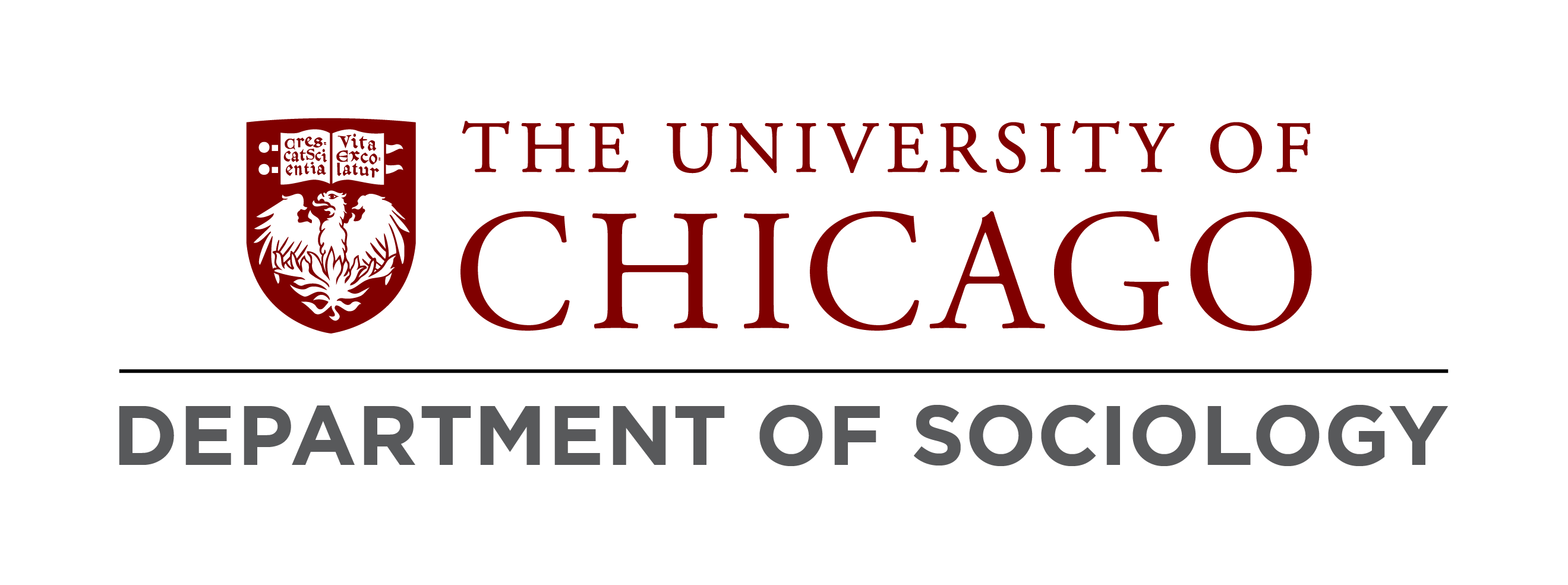Exploring the role of global imperialism in modern policing

“The assumption is that there are certain people who are fundamentally savage and inferior and worthy of violence.”
By Sarah Steimer
The culture and tactics of U.S. and UK policing are often referred to as militarized, but how such excessive use of force developed isn’t fully understood. But research from sociology Professor Julian Go offers a global, historical viewpoint of policing to explore the racialized, aggressive approach. His new book, Policing Empires: Militarization, Race, and the Imperial Boomerang in Britain and the U.S., posits that imperialism abroad and policing at home are fundamentally connected.
“We have a tendency to think about policing as an immediate problem that may have developed only in the past few decades,” he says. “But to really fundamentally understand the complexity of policing and problems associated with it, we need to have a deeper understanding that can be obtained by thinking both historically and globally.”
On Thursday, November 2, at the SemCoop, Julian Go will discuss Policing Empires: Militarization, Race, and the Imperial Boomerang in Britain and the US. He will be joined in conversation by Alex Vitale, and their conversation will be moderated by Robert Vargas.
Go says his exploration of the topic was prompted in part by high-profile cases of excessive force by officers in recent years. But he’d also long researched U.S. empires and interventions in places like the Philippines, Puerto Rico, and elsewhere — which led him to make connections between the militarization of U.S. and British police forces and colonization.
What he found puzzling was that the U.S. and UK police are armed, equipped, and trained as an army, meaning they're essentially preparing to do battle against citizens and treat them like enemy combatants. Plus, the citizens themselves are paying for the police to be armed like a military.
“I wanted to understand how we got here: How did we get to the point where the police are so heavily militarized and are equipped and trained to treat citizens like enemies of war?” Go says.
In his study of the history of policing, he found that the original intention was quite the opposite. The American tradition of policing is modeled on the British tradition, which began in the 19th century with the London Metropolitan Police. Established by Sir Robert Peel, it was expressly created as a non-militarized force to be an alternative to using the military. But even from the start, that idea quickly changed to the militarization seen today.
Part of understanding this shift is understanding the adoption of military tactics, tools, and cultures. What the press and academics call militarization, Go says, is what he refers to as imperial boomerang
“In other words, when you look historically at the moments when the police militarized, what they’re really doing is appropriating the tools and tactics of colonial policing overseas and of military interventions overseas that are tied to imperial expansion,” he says.
Go’s research also pointed to key moments when the police have turned to imperial or colonial tools and tactics. When the police turn to such resources to improve their policing, Go says, what they're really doing is responding to perceived racialized threats, fear of revolution, or rebellion in the streets.
“It's racialized in the sense that they're always imagining these outbreaks of disorder or threats to order primarily led by non-white, often immigrants or African American populations in the U.S., and Britain,” Go says. The populations who have triggered this racialized threat have varied over time, once including groups like the Irish, for example.
What Go says he came to realize is that a militarized reaction by police is predicated on the construction of citizens as colonial subjects, of deeming people as worthy of violence. Historically, he says, the people that the U.S. and UK have considered worthy of coercive control have been people abroad who are considered uncivilized, inherently violent, and unworthy of full rights — which is the justification for colonialism. “If I had to bring it down to a formula of what this history amounts to, it's essentially that police militarize when they perceive a racialized threat to order,” Go says.
While he hopes to reach scholars and historians with Policing Empires, he also hopes the book will reach a broader audience to offer a sense of how imperialism abroad and policing at home are fundamentally entangled. The hope is to expand the public’s imagination and understanding of how the problems experienced at home with aggressive policing should be thought of in a more global frame.
If policing tactics are to change, Go says, citizens need to consider how to ally with people in other states, in other contexts, and even internationally. The way the police act at home is connected to the way the U.S. and UK treat people abroad.
“I began to see how much the rhetoric and the popular perception of criminality and disorder is racialized, and how much of it is colonialist without us really realizing it,” Go says. “The assumption is that there are certain people who are fundamentally savage and inferior and worthy of violence. And this, I think, is something deep in popular consciousness. When it comes to changing policing, we have to reckon with that deep unconscious assumption that criminals are inherently violent, savage people, when in fact they are human beings and our fellow citizens.”
 THE UNIVERSITY OF CHICAGO
THE UNIVERSITY OF CHICAGO

